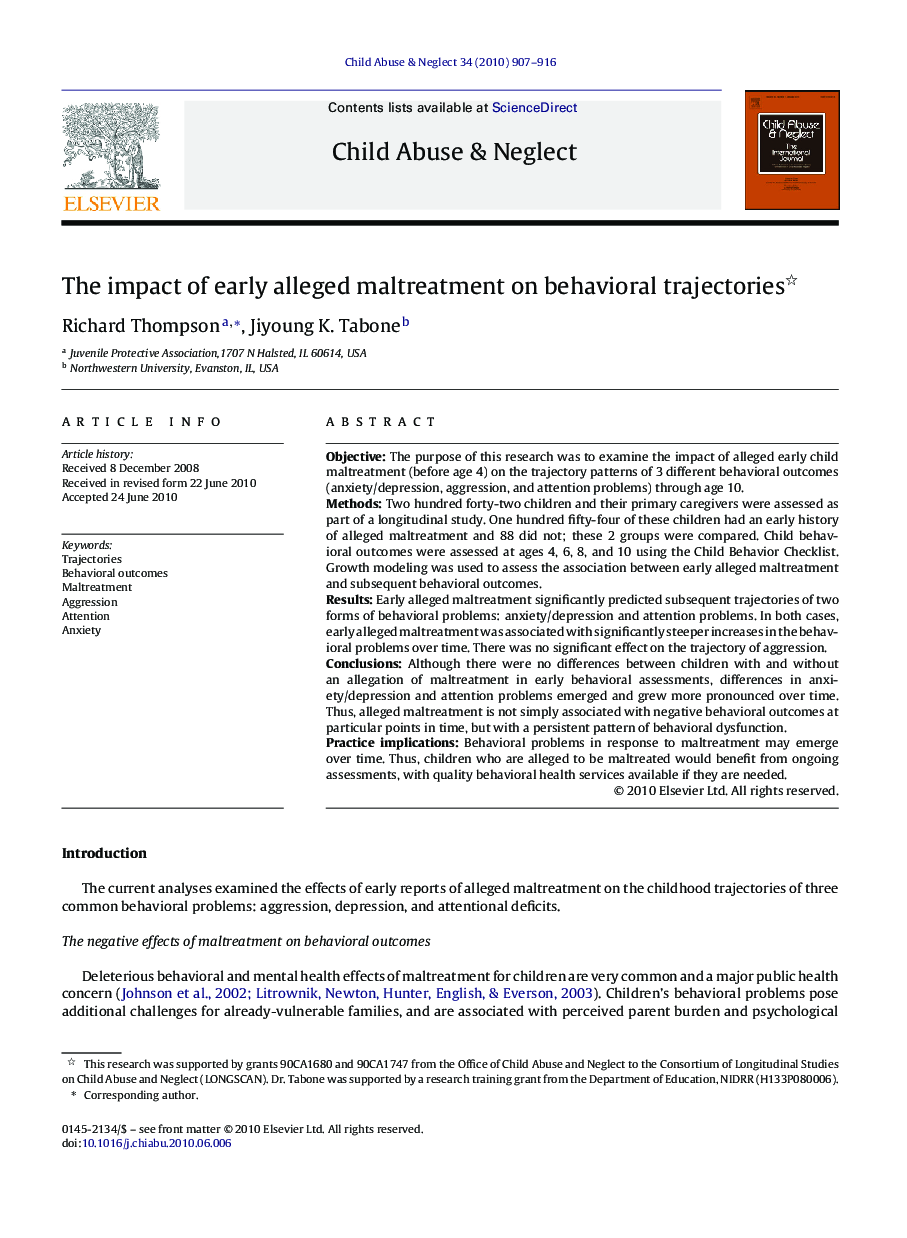| Article ID | Journal | Published Year | Pages | File Type |
|---|---|---|---|---|
| 344876 | Child Abuse & Neglect | 2010 | 10 Pages |
ObjectiveThe purpose of this research was to examine the impact of alleged early child maltreatment (before age 4) on the trajectory patterns of 3 different behavioral outcomes (anxiety/depression, aggression, and attention problems) through age 10.MethodsTwo hundred forty-two children and their primary caregivers were assessed as part of a longitudinal study. One hundred fifty-four of these children had an early history of alleged maltreatment and 88 did not; these 2 groups were compared. Child behavioral outcomes were assessed at ages 4, 6, 8, and 10 using the Child Behavior Checklist. Growth modeling was used to assess the association between early alleged maltreatment and subsequent behavioral outcomes.ResultsEarly alleged maltreatment significantly predicted subsequent trajectories of two forms of behavioral problems: anxiety/depression and attention problems. In both cases, early alleged maltreatment was associated with significantly steeper increases in the behavioral problems over time. There was no significant effect on the trajectory of aggression.ConclusionsAlthough there were no differences between children with and without an allegation of maltreatment in early behavioral assessments, differences in anxiety/depression and attention problems emerged and grew more pronounced over time. Thus, alleged maltreatment is not simply associated with negative behavioral outcomes at particular points in time, but with a persistent pattern of behavioral dysfunction.Practice implicationsBehavioral problems in response to maltreatment may emerge over time. Thus, children who are alleged to be maltreated would benefit from ongoing assessments, with quality behavioral health services available if they are needed.
